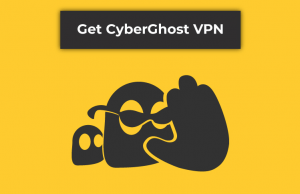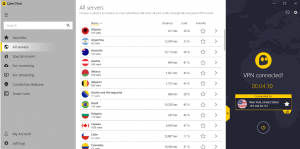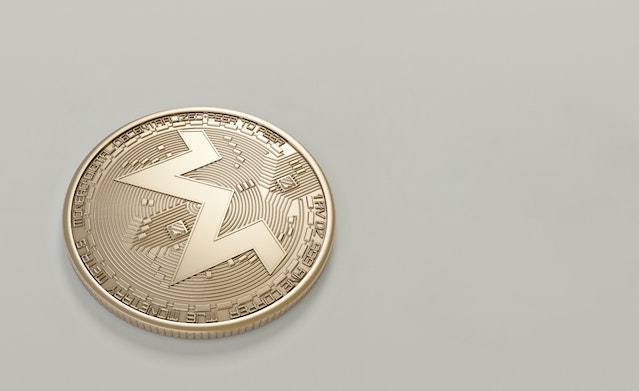Five ways that will keep your identity hidden while trading Bitcoin
Disclaimer: The text below is a sponsored article that was not written by Cryptonews.com journalists.

One of the most common misconceptions when it comes to trading Bitcoin is that it allows you to conceal your identity and remain anonymous. But does it?
Even though Bitcoin trading does not require any middlemen interference from banks or credit cards, and even though you can send and receive Bitcoin without revealing any personal information, Bitcoin is not 100% anonymous. A better and more correct definition is that Bitcoin is pseudonymous.
Pseudo-what? Leaving the pomposity of the term aside, sending and receiving bitcoins is much like writing under an alias. If that alias is ever liked to your identity, everything that you’ve written (or, in our case, traded) under that alias will now be linked to your real identity.
For Bitcoin, the alias is the address to which you receive Bitcoin. Every single transaction involving that address is permanently tucked away in the blockchain. Once there, anyone can access that transaction log. Now comes the tricky part. Because Bitcoin pseudo-anonymity makes it possible to trace transactions back to your IP address. And that’s an issue. Because your IP address contains information that can easily identify you, such as your ISP, your ZIP Code, or even your exact longitude and latitude. Pretty scary, right?
That being said, achieving anonymity with Bitcoin can be done in multiple ways. Some are simple to use and provide unrivaled anonymity with just a few simple clicks, while some are a bit more complicated and require a bit of hassle and technical expertise. However, at the end of the day, it’s up to you to decide which one suits you best. So, let’s get to it, shall we?
1. Join a Virtual Private Network
The best tool when it comes to keeping your online anonymity when involved in crypto transactions is a VPN. Short for Virtual Private Network, this simple to use software hides and replaces your real IP address and also encrypts your entire Internet traffic. This process makes it impossible for others to track any of your online activities – crypto trading included.
This tool is simple to use, doesn’t require you to change any of your trading habits, and offers unequaled levels of anonymity. That’s why it’s the top choice for making sure your crypto deals remain 100% anonymous.
If you’re looking for a VPN, we highly recommend that you try CyberGhost VPN. If we didn’t know otherwise, we could have sworn this VPN was built for crypto trading. It has a strict No Log policy – an essential feature for crypto traders –, it offers the highest type of data encryption currently available, and it’s so fast that you’ll completely forget you’re using a VPN in the first place.
At the moment of publishing this article, the company had a very generous discount of 79% that you too can take advantage of by clicking here.

2. Use new Bitcoin addresses for each transaction
The first technique we’re going to mention is one that also appears in the original whitepaper. There, Bitcoin users were told to use a new address for each transaction. This way, it would be extremely difficult (but not impossible) to trace all the transactions back to a single name. To make things easier for you, there are tools that can help you generate new addresses every time you’re about to receive Bitcoin payments.
3. Use stealth addresses instead of publishing real addresses
Stealth addresses are an incredibly powerful tool that can grant you an additional layer of privacy and anonymity. When you use stealth addresses for receiving payments, the blockchain will record multiple outgoing payments to different addresses instead of these transactions appearing as multiple payments to the same address. This makes it impossible to link transactions to your published address or one-time generated address. Then, only you, as the owner of the stealth address, can then use your private view key to see all incoming transactions. This last part is precisely why people may run into technological challenges when it comes to the implementation of stealth addresses.
4. Anonymize your existing bitcoins using Mixers
The bitcoins that you have in your wallet right now may have already be tainted with a link that could identify you. Luckily, it is possible to break that link and anonymize those coins again. If you get this right, all future transactions will by no means be connected to you anymore. So, how does this work?
It’s pretty simple. But it won’t be free. To get your coins anonymized, you’ll need to send them to a mixer, also known as a tumbler. In return for a fee, these mixers will give you back the coins to a new address you provide. The coins you get back are part of a big pool maintained by the mixing service and will have no connection whatsoever with the original coins you first sent.
There are two types of Bitcoin mixers – centralized and decentralized. The advantage of decentralized mixers is that they can get the same result without the central authority overseeing the mixing.
5. Change your transactional behavior
One of the most common mistakes people make when doing crypto transactions is associating personally identifiable information to their account. Avoid at all costs liking your personal data or organizational information to the cryptocurrency address or transaction. Since most crypto exchanges leak out personal data that can trace your transactions back to you, adopting this safe behaviour will at least ensure you maintain some level of anonymity.
Final thoughts
At the end of the day, only you know how much anonymity you need when it comes to crypto trading. If keeping your identity hidden is truly important, using a VPN is the best way to go about it. Plus, it just happens to be the easiest to use method as well. You can try out CyberGhost VPN – a recommended crypto trading VPN for only 2.75$/months, and now for a limited time only they offer extra 2 months for free. Plus, if you didn’t like it, there’s 45-days money-back guarantee, so it’s risk free.

{no_ads}



